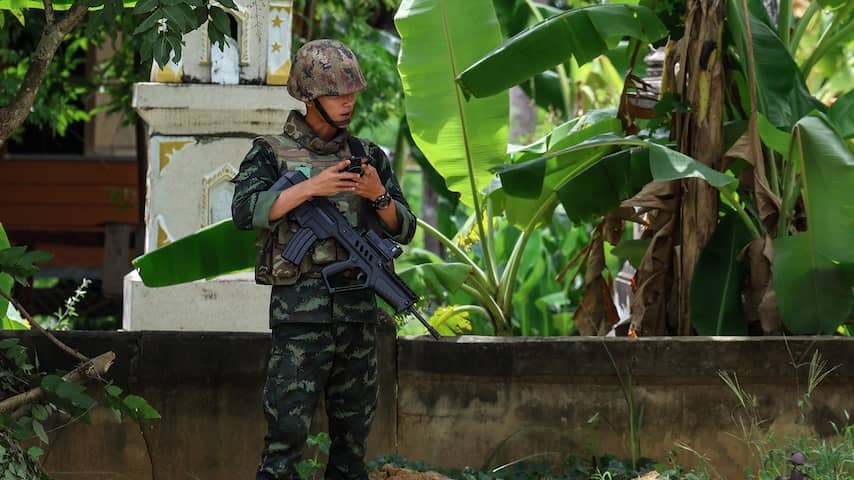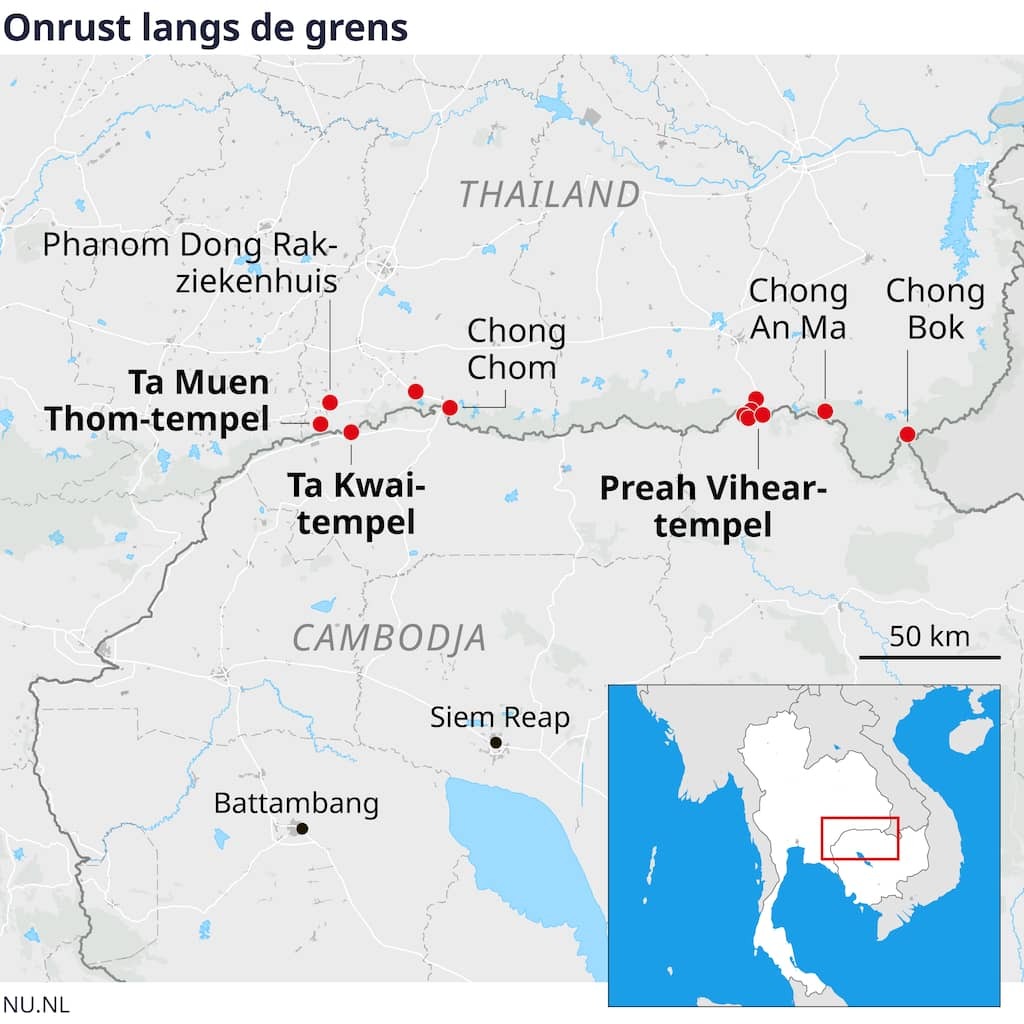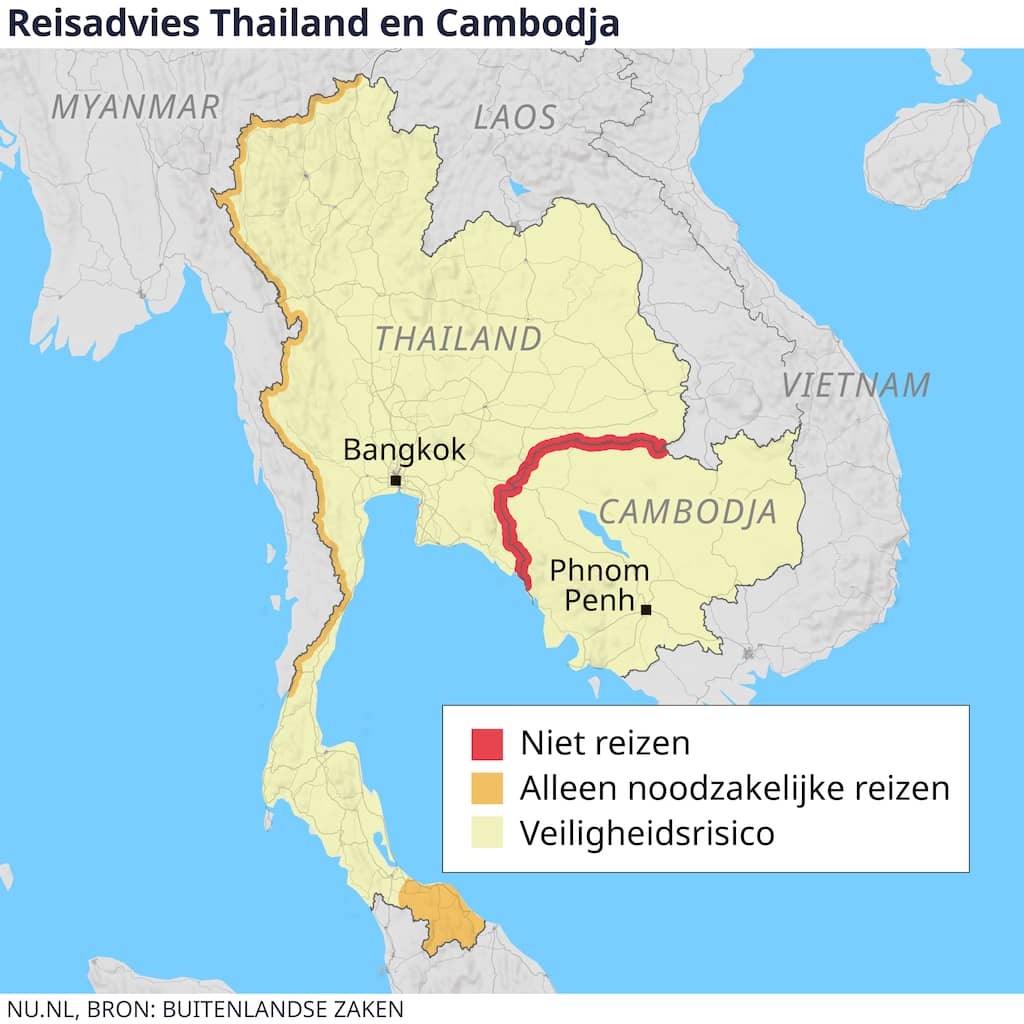
The border conflict between Thailand and Cambodia, which revolves around disputed territory around the Preah Vihear temple, has escalated again this week. Fighting in the border area has resulted in multiple fatalities. But where does this violence actually come from?
The dispute has its roots in a border treaty from 1907, Southeast Asia correspondent Kris Janssens explains to NU.nl. In this treaty, the borders between Thailand and French Indochina, to which Cambodia belonged at the time, were established. “There is a map attached to that agreement, but that map is actually not very clear,” says Janssens. “The borders were not easy to see, and that caused a number of violent conflicts in the years that followed.”
Cambodia became independent in 1953 and went to the International Court of Justice (ICJ) in 1962 to claim sovereignty over the so-called Preah Vihear temple on the border. The Court ruled in favor of Cambodia. “But to this day, Thailand does not recognize that ruling,” says Janssens. And so there was haggling over more temples in the border area.
The decades-long conflict flared up again at the end of May when a Cambodian soldier was killed in a shooting incident along the disputed border. Initially, this happened without violence. Thailand stopped providing electricity and internet services to Cambodia, while Cambodia stopped importing Thai products.
But the conflict escalated on Thursday. In fighting at the border, at least twelve people were killed. A day later, the Thai army reported the deaths of a hundred Cambodian soldiers. Due to the fighting, tens of thousands of civilians have been evacuated from the border area and the border has been completely closed.
According to the correspondent, the conflict is no longer about the temples. “They now really have a symbolic value. The Cambodians simply do not want to give up any land. They believe that it is their territory, and it feels to them as if it is being taken away from them. If you talk to the people about it, a lot of emotions come to the surface.”

Political situation is complex
The current prime ministers of Thailand and Cambodia are the children of former prime ministers of the countries. Thaksin Shinawatra was prime minister of Thailand from 2001 to 2006, until he had to leave the country after a military coup. He has since returned and his daughter, Paetongtarn Shinawatra, has become prime minister. In Cambodia, Hun Sen was prime minister for more than thirty years. He handed over the baton to his son Hun Manet two years ago.
The two former prime ministers still play a role behind the scenes in the policies of Thailand and Cambodia. They previously had a good relationship, which seemed to offer hope for a peaceful resolution of the escalating border conflict. “But there is nothing left of that friendship,” says Janssens. “The men have recently accused each other of all sorts of things via social media.”
In addition, a confidential telephone conversation was leaked in which Paetongtarn Shinawatra had contacted Hun Sen directly. In that conversation, she tried to marginalize the army and emphasize that she, as the ruling party, wanted a peaceful solution.
“But that phone call was leaked and has put her in a tight spot,” says Janssens. Paetongtarn Shinawatra has been temporarily suspended by the constitutional court. “There is a chance that she will have to resign permanently.”

Chance of coup by army in Thailand
The leaked phone call not only fueled distrust in their own country, but also heightened tensions between the government and the powerful army. “Thailand has a history of military coups,” says Janssens. “The last one was in 2014, and the one before that in 2006. That always happens at a time of political crisis.”
The correspondent does not rule out a new coup. “It’s hard to say, but I think there’s a reasonable chance. When that phone call was leaked, there were calls in Thailand for new elections to be held. But a coup is of course a lot faster.”
The fact that Thailand is now in an armed conflict makes the chance of a coup greater, according to Janssen. “There is a chance that the army will say: ‘To make everything go quickly and efficiently, a clear leader is needed. Our politicians are not succeeding, we are stepping onto the stage and taking over power.’ It could be.”